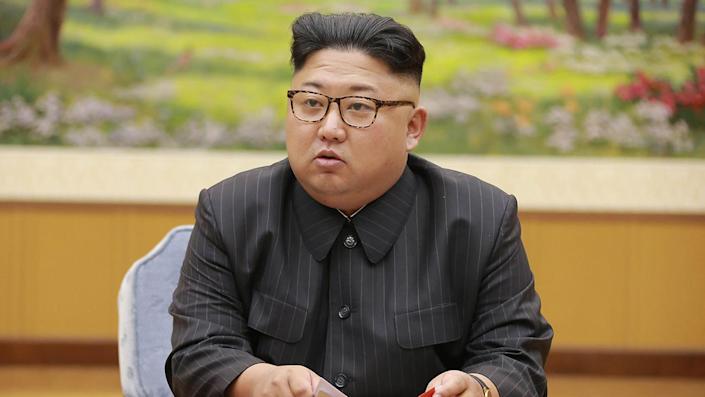The U.S. State Department announced new sanctions on entities and individuals located in Russia, North Korea, and China in the wake of the Hermit Kingdom’s launching a long-range ballistic missile Thursday, weeks after the U.S. warned of new Pyongyang tests.
“The United States today announced sanctions on five entities and individuals located in Russia and the DPRK and one entity in the People’s Republic of China (PRC) for proliferation activities under the Iran, North Korea, and Syria Nonproliferation Act (INKSNA),” State Department spokesperson Ned Price said in a statement Thursday.
The U.S. imposed sanctions against Russian entities Ardis Group of Companies LLC, PFK Profpodshipnik LLC, and Russian individual Igor Aleksandrovich Michurin; as well as North Korean entity Second Academy of Natural Science Foreign Affairs Bureau and North Korean individual Ri Sung Chol for “transferring sensitive items to North Korea’s missile program.”
US CONDEMNS NORTH KOREA’S LONG-RANGE BALLISTIC MISSILE TEST
These measures represent part of the U.S.’s ongoing efforts to impede North Korea’s “ability to advance its missile program and they highlight the negative role Russia plays on the world stage as a proliferator to programs of concern.”
Price also announced sanctions against Chinese entity Zhengzhou Nanbei Instrument Equipment Co. Ltd for supplying Syria with equipment controlled by the Australia Group chemical and biological weapons nonproliferation regime. He said the new sanctions highlighted “the role of PRC entities in proliferation and shortcomings in the PRC’s implementation of export controls and its nonproliferation track record.”
The sanctions will last for two years.
“These determinations underscore the continuing need for all countries to remain vigilant to efforts by North Korea and Syria to advance their proliferation programs of concern,” Price added. “We will continue to work to impede these programs and use our sanctions authorities to spotlight the foreign suppliers, such as these entities in the PRC and Russia that provide sensitive materials and technology to the DPRK and Syria.”
The U.S. government said earlier this month that North Korea tested a new intercontinental ballistic missile (ICBM) system Feb. 26 and March 4.
HALEY: NORTH KOREA ICBM TEST SHOWS KIM ‘SMELLS BLOOD IN THE WATER’ WITH ‘PERCEIVED WEAKNESS’ FROM US
Japan’s Vice Defense Minister Makoto Oniki said that Thursday’s missile, which reached a maximum altitude of 3,728 miles, was possibly a new type of ICBM. Japan’s coast guard, which warned vessels in nearby waters about the potential for falling objects, said it believed the missile flew about an hour before landing in waters outside the country’s exclusive economic zone.
“This launch is a brazen violation of multiple UN Security Council resolutions and needlessly raises tensions and risks destabilizing the security situation in the region,” White House Press Secretary Jen Psaki said. “This action demonstrates that the DPRK continues to prioritize its weapons of mass destruction and ballistic missile programs over the well-being of its people.”
North Korea completed more missile tests in January than it did in all of 2021, alarming South Korean officials who worry about its northern neighbor’s intentions.
North Korea in January attempted to justify its testing activity as an exercise of its right to self-defense. It has threatened stronger action after the Biden administration imposed fresh sanctions following two tests of a purported hypersonic missile in early January.
In its 2022 annual threat assessment, the U.S. intelligence community warned of North Korea’s “continued development of ICBMs” and its commitment to expanding the country’s nuclear weapons arsenal, as well as continuing ballistic missile research and development.
Fox News’ Brooke Singman contributed to this report.


